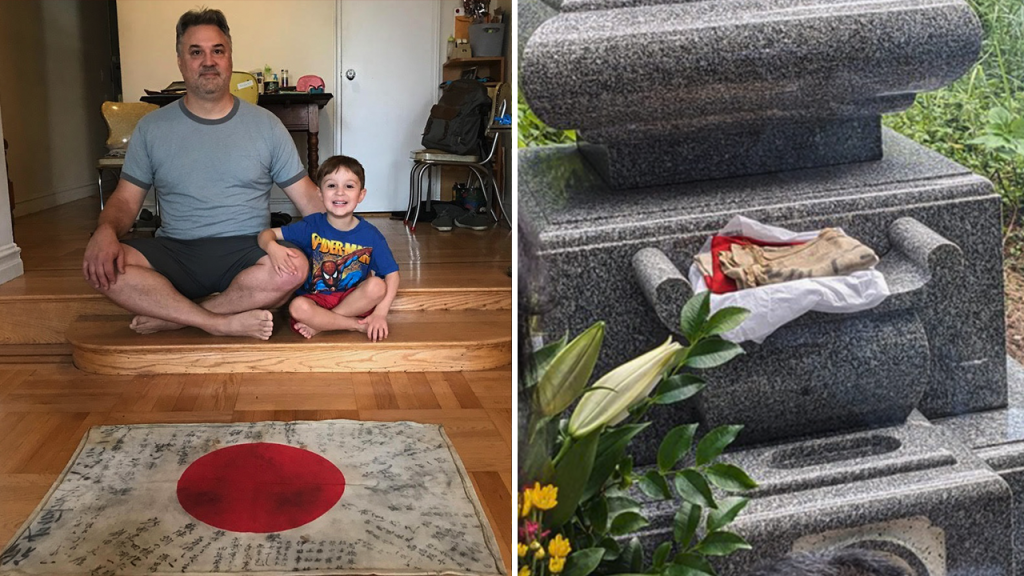A man in New York inherited a Yosegaki Hinomaru banner, also known as a good luck flag, from his grandfather who served in World War II for the United States. His grandfather, Bernard Stein, served in the U.S. Army and had the flag hanging proudly in his house for many years. The man, Scott Stein, originally planned on having the flag restored but decided to return it to its rightful owner after speaking with an expert. His grandfather did not speak openly about the war, like many veterans, but Stein was fascinated by the flag as a child and wanted to honor his grandfather’s memory.
The expert Stein consulted recommended returning the flag, and after learning of a similar flag being brought back to Japan, he reached out to the Obon Society in Oregon. This nonprofit facilitates the reconciliation of families by returning items such as flags that were taken during times of war. The Obon Society connected the flag to a soldier named Yukikazu Hiyama, who passed away in 1945. The flag was then returned to Yukikazu Hiyama’s son, who hosted a returning ceremony with his entire family. The son carried the flag to his mother’s grave to show her that her husband had finally come home, as she had waited all her life for him to return.
Many Japanese soldiers carried these flags, inscribed with names and messages from loved ones, for good luck during battle. The return of the Yosegaki Hinomaru flag brought closure to Yukikazu Hiyama’s family, as it is considered a form of non-biological human remains that evoke intense emotions similar to the return of bones or teeth in American MIA families. For this son, the flag is the only memento he has of his father, who never returned home after the war. The emotional impact of the flag’s return highlights the significance of this gesture in helping to reconcile families affected by war.
The Obon Society spent seven years searching for the rightful owner of the flag, finally connecting it to Yukikazu Hiyama’s son. The reunion of the flag with the soldier’s family brought a sense of closure and healing, as the son carried the flag to his mother’s grave to symbolize his father’s return home after so many years. This gesture was a powerful demonstration of the lasting impact of war on families and the importance of honoring the memories of those who served. The return of the Yosegaki Hinomaru flag served as a poignant reminder of the sacrifices made by soldiers and the families they left behind.
Scott Stein’s decision to return the flag to its rightful owner demonstrates a deep respect for his grandfather’s service and a commitment to honoring the memories of those who served in World War II. The emotional impact of the flag’s return highlights the importance of reconciling families affected by war and providing closure to those who have lost loved ones in battle. The Obon Society’s work in facilitating these reunions shows the lasting impact of war on families and the healing power of honoring the memories of those who served. By returning the Yosegaki Hinomaru flag, Stein helped bring closure and healing to Yukikazu Hiyama’s family, demonstrating the significance of this gesture in honoring the sacrifices made by soldiers during World War II.


